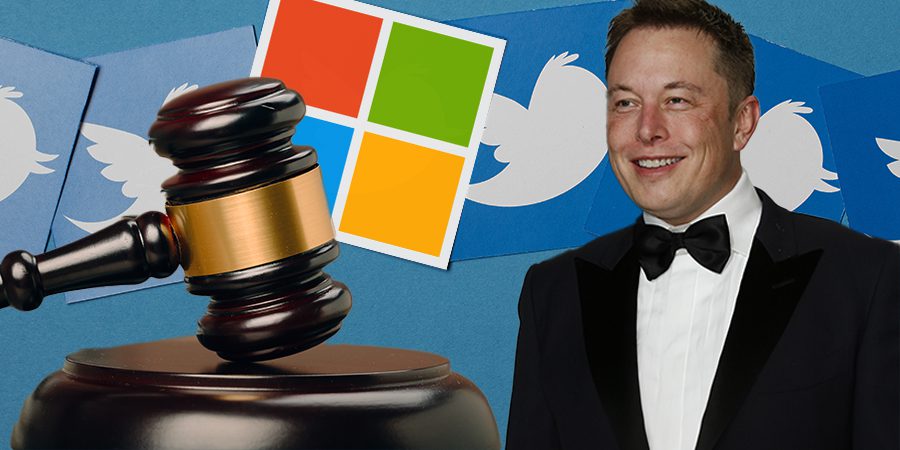In this article, we’ll look at the reasons behind the brewing legal confrontation between Elon Musk and Microsoft over the alleged illegal use of Twitter data to train AI models.
Key Takeaways:
- Elon Musk threatens to sue Microsoft over its use of Twitter data for AI training.
- The advertising service of Microsoft declared that it would no longer back Twitter as a result of changes in payment for API usage.
- Twitter is putting its API behind a paywall, leading to increased costs for large companies like Microsoft.
- Data ownership is becoming a contentious issue in the development of advanced AI models.
- Several companies are starting to demand payment for the use of their data in AI training.
Elon Musk’s Legal Threat to Microsoft
Elon Musk, the CEO of Tesla and SpaceX, has issued a legal threat to Microsoft.
The billionaire entrepreneur alleges that the tech giant has been using Twitter data illegally to train its artificial intelligence models.
This development comes after news emerged that Microsoft’s advertising platform would no longer support Twitter.
Microsoft’s decision to stop supporting Twitter was reportedly due to changes in the social media platform’s API access requirements.
In response to these developments, Elon Musk took to Twitter to express his dissatisfaction, saying, “They trained illegally using Twitter data. Lawsuit time.”
It is important to note that Elon Musk has previously threatened legal action in the past without following through.
As of now, it remains uncertain whether Musk will take legal action against Microsoft.
Microsoft Drops Twitter Support Amid API Payment Changes
Microsoft’s advertising platform recently announced that it would cease support for Twitter starting April 25th, 2023.
This move implies that companies will no longer be able to use Microsoft’s platform to manage their tweets or engagement.
The decision was prompted by Twitter’s new policy of putting its API (application programming interface) behind a paywall.
This change means that companies now need to pay to access Twitter’s API, which has been free for developers to use up until now.
The Rising Cost of Accessing Twitter’s API
Under Twitter’s new pricing arrangement, large companies like Microsoft could be required to pay as much as $42,000 per month to gain access to Twitter’s API.
This increased cost has already resulted in some smaller developers abandoning the platform, including Tweetbot maker Tapbots.
The decision to charge for API access is expected to have far-reaching consequences for the development of AI tools that rely on Twitter data.
It remains to be seen how many developers and companies will be willing to pay the increased fees for access to Twitter’s vast pool of data.
Data Ownership Battles in AI Development
The legal threats from Elon Musk and the changes in Twitter’s API access policy underscore the growing importance of data ownership in the AI industry.
Advanced AI models, such as large language models (LLMs) like OpenAI’s GPT, require terabytes of data for training, much of which is scraped from websites like Reddit, StackOverflow, and Twitter.
Data from social networks is particularly valuable for AI training because it captures informal, back-and-forth conversations.
As AI models move from research labs and universities to the corporate world, data owners are beginning to assert their rights and make demands.
Companies Seeking Compensation for Data Usage in AI Training
In response to the growing commercialization of AI technology, several companies have started to demand compensation for the use of their data in AI training.
For example, Reddit announced earlier this week that it would charge companies for access to its programming interface, which feeds conversations among Redditors into AI training software.
In a similar move, Universal Music Group stated that training AI models on artists’ music without permission would constitute “both a breach of our agreements and a violation of copyright law.”
This statement came in response to a viral video of a song that claimed to use AI to imitate the rapper Drake.
Additionally, stock photo database Getty Images is suing Stable Diffusion for allegedly copying its content to train an AI image generator.
These developments highlight the increasing importance of data ownership and usage rights in the rapidly evolving AI industry.
Conclusion
Elon Musk’s legal threat against Microsoft emphasizes the significance of data ownership and usage rights in the AI sector.
The increasing need for vast amounts of data to train advanced AI models has led to companies asserting their rights and demanding compensation for the use of their data.
As a result, the AI development landscape is becoming more challenging, with potential legal battles on the horizon.
The industry will need to navigate these issues carefully to ensure continued innovation and growth.
It is essential for companies to establish clear agreements on data ownership and usage rights, as well as to respect the intellectual property rights of data owners.
Developing mutually beneficial partnerships between data owners and AI developers could be a potential solution to these challenges.
By collaborating, both parties can benefit from the value created by AI-driven products and services while ensuring that data usage rights are respected.
 Sections of this topic
Sections of this topic
















